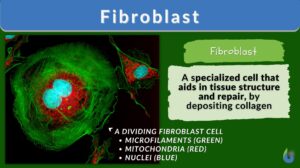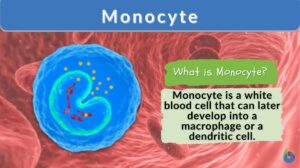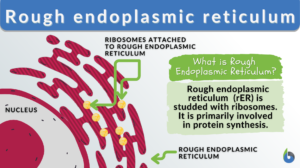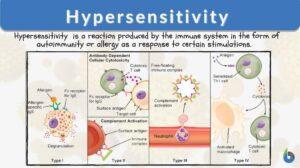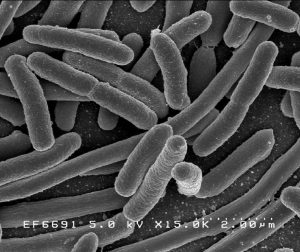Search Results for: inflammatory response
Inflammatory response
Definition noun, plural: inflammatory responses (medicine) A response of the body to an injurious agent, characterized by... Read More
Fibrinous exudate
What Is Fibrinous Exudate? Fibrinous exudate is a type of exudate (inflammatory fluid) that forms at the site of tissue... Read More
Fibroblast
The building block of living things is known as the cell. The cell contributes to many parts and functions of different... Read More
Purulent exudate
Definition noun A type of exudate that is distinctively thick and yellowish, grayish or greenish in color, and consisting... Read More
Rough endoplasmic reticulum
Rough Endoplasmic Reticulum Definition The rough endoplasmic reticulum (rough ER or rER) is a membrane-bound organelle... Read More
Proteoglycan
What are proteoglycans? Proteoglycans are primarily a type of polysaccharide. Structurally, proteoglycans are... Read More
Hypersensitivity
Hypersensitivity Definition Hypersensitivity is the exaggerated immune response to protect the human from foreign bodies... Read More
Adipose tissue
Adipose Tissue Definition Adipose tissue, a specialized variety of connective tissue, is composed of lipid-rich cells known... Read More
“Mutualism factor” could explain why body does not attack normal flora
When sadness reeks in and you feel as if you are all by yourself, think again. That is because you are never alone. As a... Read More
Cell adhesion
Cell Adhesion Definition Cell adhesion is the process in which a cell uses a specialized complex of proteins to get... Read More
Mitochondrion
Mitochondrion Definition What are mitochondria? The term “mitochondrion” comes from the two words of the Greek... Read More
Leukocytosis
What Is Leukocytosis? Leukocytosis is a condition wherein the number of White Blood Cells (WBCs) is increased above the... Read More
Glucocorticoid
Definition noun, plural: glucocorticoids Any of a group of corticosteroids involved in carbohydrate metabolism (e.g.... Read More
Mitochondrial DNA – hallmark of psychological stress
We often hear that stress can be unsettling as it could make us ill when it becomes chronic and overwhelming. However, is... Read More
Humoral immunity
Let’s get to know where one should place humoral immunity, the topic of today’s discussion!! By the end of the article,... Read More
Phagocytosis
Phagocytosis Definition Phagocytosis is a basic physiological cellular process wherein a cell ingests a solid particle... Read More
Hyperosmotic
Hyperosmotic Definition What is hyperosmotic? The word hyperosmotic is derived from two Greek words: 'hyper', meaning... Read More
Trichomonas vaginalis
Definition noun A parasitic flagellated protozoan that may infect the vagina and the urethra of women and the urethra and... Read More
Tissue repair
Definition noun The process of restoring the structural and physiological integrity after an injury Supplement Tissue repair... Read More
Hyperalgesia
Definition noun The excessive sensitivity to pain Supplement Hyperalgesia pertains to the excessive sensitivity to pain. It... Read More
Amoebic dysentery
Definition noun A form of dysentery in which the causative agent is an amoeba, particularly Entamoeba... Read More
Trichomoniasis
Definition noun (pathology) A sexually transmitted infection caused by a trichomonad species, especially Trichomonas... Read More
Prostaglandin
Definition noun, plural: prostaglandins A group of eicosanoids, structurally characterized as 20-carbon unsaturated fatty... Read More
Pathobiology of allergy and its most severe form, anaphylaxis
When allergy season looms, some people with serious hypersensitivity to allergens tend to be apprehensive of what may come.... Read More
Diaphoresis
What is Diaphoresis? Diaphoresis is referred to excessive or profuse perspiration or sweating which may be due to... Read More
Corticosteroid
Definition noun, plural: corticosteroids A steroid hormone produced by the adrenal cortex, e.g. glucocorticoids and... Read More
Exudate cell
Definition noun, plural: exudate cells Any of the cells participating in the forming of exudate during inflammation or a... Read More
Immunoglobulin A
Definition noun An immunoglobulin (antibody) that is characterized by its α-heavy chain, and its prevalence in mucous... Read More
Serous exudate
Definition noun A type of exudate that forms as a clear, thin, watery fluid with relatively low protein content, usually... Read More
Integumentary system
Integumentary System Definition The integumentary system is the outermost layer of the body. The animal body, in... Read More
Degenerative disease
Degenerative Disease Definition A degenerative disease is defined as a disease characterized by the worsening condition due... Read More
Hemorrhagic exudate
Definition noun A type of exudate that is bloody because of the large component of red blood cells released from ruptured... Read More



